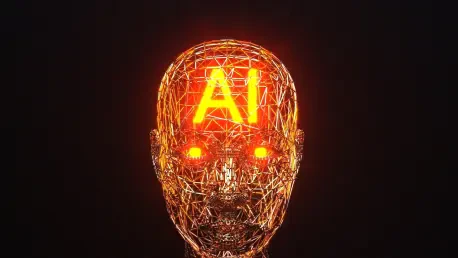The collaboration between German utility RWE and Amazon underscores a significant trend in the integration of AI within the energy sector, where technology is increasingly pivotal for sustainability. This alliance not only highlights the strategic move toward greener solutions but also sheds light on emerging trends in cloud services and AI analytics applied to energy efficiency. The challenge lies in meeting ambitious sustainability targets while navigating through complex technological landscapes, encouraging curiosity about the potential avenues for innovation.
Context and Significance
In a time when corporations face mounting pressure to adopt sustainable practices, partnerships like that of RWE and Amazon exemplify the synergy between traditional energy suppliers and technology giants. RWE’s provision of clean wind and solar energy to Amazon aligns with broader green energy objectives and serves as a case study in successful industrial collaboration. On the technological frontier, Amazon offers cloud services equipped with AI and data analytics capabilities, which are paramount for optimizing energy consumption and efficiency. This alliance represents a compelling scenario where digitalization plays an integral role in energy transformation.
Technological Features and Performance
The partnership places a strong emphasis on AI-driven data analytics and predictive maintenance, highlighting the transformative power of technology. Advanced data analytics enable precise energy forecasting and consumption optimization, elevating operational efficiency. Predictive maintenance allows for real-time monitoring of equipment, predicting failures, and minimizing downtime. Amazon’s cloud services facilitate these functionalities, demonstrating impressive performance improvements for RWE’s operations, including critical application migrations to AWS. Such technological advancements position both companies at the forefront of industry innovation, driving forward notable improvements in energy trading and commercial asset optimization.
Industry Landscape and Trends
Recent developments in AI applications within the energy sector reveal a growing focus on leveraging technology for sustainable practices. With electrification trends gaining momentum, the energy industry is embracing digital solutions to meet continuously evolving demands. RWE’s exploration into long-term renewable development and power purchase agreements marks a wider shift in industry behavior toward sustainable energy contracts. Simultaneously, Amazon’s commitment to expanding data center infrastructure powered by renewable sources illustrates a forward-thinking approach, reflecting emerging trends that prioritize environmental responsibility.
Practical Applications and Success Stories
Across various sectors, AI-driven energy solutions are gaining traction through innovative implementations. Industries deploying such technologies benefit from improved energy efficiency and reduced carbon footprints, exemplifying notable success stories. For instance, RWE’s initiative to utilize AWS cloud services for enhanced performance stands as a testament to how digital and energy sectors collaborate for mutual growth. These use cases not only underscore the applications’ practicality but also demonstrate unique strategies in the pursuit of sustainable energy goals.
Challenges Behind Implementation
Despite the promising advantages, challenges persist in the deployment of AI-driven energy technologies. Technical hurdles, including regulatory constraints and market obstacles, pose significant barriers to widespread adoption. The development of robust AI models requires overcoming these challenges to maximize their potential in predicting energy trends and optimizing consumption. Efforts to address these impediments are underway, emphasizing collaboration and innovation to refine technological solutions for broader applicability.
Strategic Future Outlook
The future trajectory of AI within the energy industry projects exciting possibilities. Anticipated breakthroughs suggest advancements in AI forecasting models, particularly through initiatives like RWE’s AI Research Laboratory in Seattle. This continuation in research and development aims to solidify the integration of AI into the energy mix, promising long-term impacts on industry standards and societal energy consumption patterns. While the focus is on AI’s capabilities to revolutionize the industry, the strategic direction calls for careful navigation of arising opportunities and challenges.
Verdict and Reflection
The collaboration between RWE and Amazon has exemplified a pivotal step into employing AI-driven solutions within the energy sector. The strategic use of technology endorses significant improvements in energy management and operational efficiencies, pointing toward a sustainable path. Despite challenges, the potential of AI to reshape the energy landscape is undeniable, urging the industry to embrace innovation and synergy in addressing global sustainability targets. This review highlights how strategic partnerships can pave the way toward a more eco-conscious future, backed by technological prowess and collaborative foresight.









